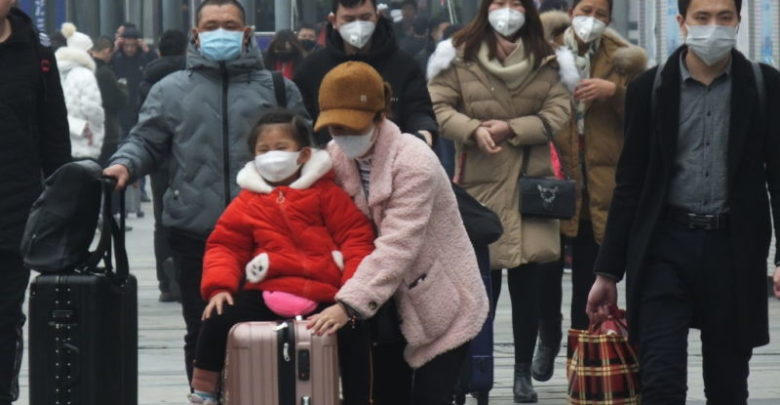From November 8, the United States will allow fully vaccinated foreigners to enter the country

The White House announced on Friday (October 15) that COVID-19 travel restrictions for fully vaccinated foreign nationals will be lifted effective Nov. 8, ending historic restrictions that had barred much of the world from entering the United States.
White House spokesman Kevin Munoz said on Twitter, announcing the start date for the new rules on travel into and out of the country, that the policy is “guided by public health, stringent, and consistent.”
The unprecedented travel restrictions kept millions of visitors from China, Canada, Mexico, India, Brazil, much of Europe, and elsewhere from entering the United States, reducing US tourism and harming border communities’ economies. They made it impossible for many loved ones and foreign workers to reunite with their families. Allies in the United States had heavily lobbied the Biden administration to relax the rules.
Non-US citizen restrictions were first imposed on air travelers from China in January 2020 by then-President Donald Trump, and then expanded to dozens of other countries, with no clear metrics for how and when they should be lifted.
Non-essential travel restrictions have been in place at land borders with Mexico and Canada since March 2020 to combat the COVID-19 pandemic.
Reuters broke the news of the November 8 start date earlier in the day on Friday.
Stocks in the airline, hotel and cruise industries in the United States rose as a result of the news, with American Airlines up 2%, Marriott International Inc up 3.7 percent, and Carnival Corp up 1.6 percent.
COVID-19 vaccines authorized by U.S. regulators or the World Health Organization.
The White House, which held a meeting late Thursday to finalize the Nov. 8 date, faces some remaining questions, including how and what exemptions the Biden administration will grant to the vaccine requirements. Children under 18, for example, are largely expected to be exempt from the requirements, an official said.
US Travel Association Chief Executive Roger Dow said declines in international visits since the pandemic started resulted in more than $250 billion in lost income.
Dow said in a statement that the Nov. 8 date “is critically important for planning – for airlines, for travel-supported businesses, and for millions of travelers worldwide who will now advance plans to visit the United States once again.”
The White House announced on Sept. 20 that the United States would lift restrictions on air travelers from 33 countries in early November. It did not specify the date at the time.
Starting Nov. 8, the United States will admit fully vaccinated foreign air travelers from the 26 so-called Schengen countries in Europe, including France, Germany, Italy, Spain, Switzerland, and Greece, as well as Britain, Ireland, China, India, South Africa, Iran, and Brazil.
The unprecedented US restrictions have barred non-US citizens who have spent the previous 14 days in those countries from entering.
Throughout the pandemic, the United States allowed foreign air travelers from more than 150 countries, a policy that critics said made little sense because some countries with high infection rates were not on the restricted list, while others on the list had the pandemic under control.
The White House announced last month that all foreign nationals traveling from other countries would be subject to vaccine requirements.
The new rules do not require foreign visitors or Americans entering the country to go into quarantine.
Americans traveling overseas must still show proof of a recent negative COVID-19 test, and unvaccinated Americans will face stricter testing requirements. They will also be subject to restrictions in countries they plan to visit, which may include quarantines. The CDC plans to issue new rules soon on contact tracing for international air travelers.






